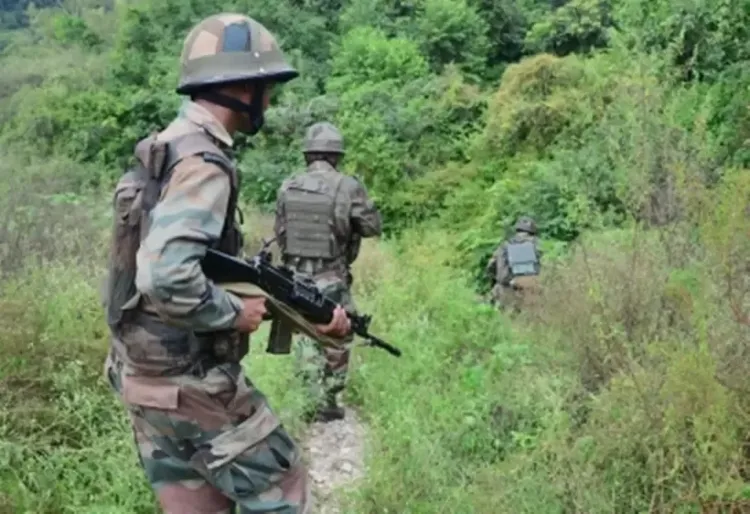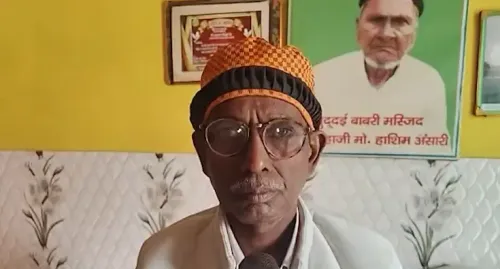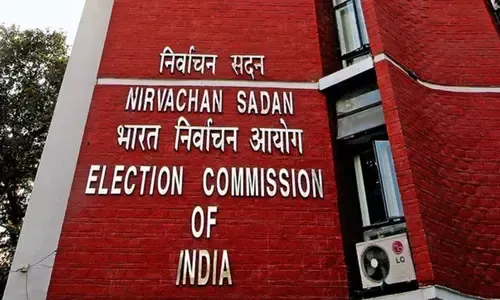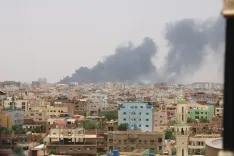Is Pakistan Violating Ceasefire on the International Border in Jammu?

Synopsis
Key Takeaways
- Pakistan's unprovoked ceasefire violations have persisted for six days.
- The Indian Army has acted quickly and proportionately in response.
- The recent terrorist attack has heightened national security concerns.
- Prime Minister Modi has granted full authority to the armed forces.
- Security forces have begun demolishing the homes of active terrorists.
Jammu, April 30 (NationPress) Following unprovoked ceasefire violations on the Line of Control (LoC) for six consecutive days, Pakistani troops commenced unprovoked firing on the International Border (IB) in the Jammu district on Wednesday.
The spokesperson for the Defence Ministry stated, “In addition to the previous reports from the night of 29-30 April, there have been instances of unprovoked small arms fire by the Pakistan Army from their posts across the LoC in the Baramulla and Kupwara districts, as well as along the International Border in the Pargwal Sector.”
“Indian Army troops reacted appropriately,” the spokesman added.
On Wednesday, the Pakistan Army has continued its pattern of unprovoked firing on the LoC in Jammu and Kashmir, marking the sixth day of such actions, with the Indian Army responding quickly and proportionately.
The Defence Ministry spokesman reiterated earlier today, “During the night of 29-30 April, Pakistani posts initiated unprovoked small-arms fire across the LoC opposite the Naushera, Sunderbani, and Akhnoor sectors in the Union Territory of Jammu & Kashmir.”
“Indian Army troops responded with swiftness and proportionality,” the spokesperson confirmed.
Between April 28-29, the Pakistan Army engaged in unprovoked small arms firing across the LoC in areas opposite the Kupwara and Baramulla districts, alongside the Akhnoor sector of Jammu district.
Officials noted that the Indian Army's response to the provocations was measured and effective.
Tensions have escalated between the two nations after the Lashkar-e-Taiba (LeT) terrorists, supported by Pakistan, killed 26 innocent civilians, including 25 tourists and a local individual, on April 22 in Baisaran meadow, Pahalgam.
The nation was outraged by this cowardly act, prompting Prime Minister Narendra Modi to assert that the terrorists, along with their handlers and supporters, would be pursued relentlessly.
PM Modi has granted the armed forces full authority to determine the timing, targets, and responses regarding the Pahalgam terror attack.
This statement followed a meeting involving Defence Minister Rajnath Singh, National Security Advisor Ajit Doval, Chief of Defence Services, and the heads of the Army, Navy, and Air Force.
J&K Lt Governor Manoj Sinha recently conducted a security review meeting with Army Chief General Upendra Dwivedi in Srinagar.
The Lt Governor urged the Army to utilize all necessary force to track down the perpetrators of the Pahalgam terror attack. Furthermore, to send a strong message to terrorists and their overground workers (OGWs), security forces have begun demolishing the homes of identified terrorists.
As of now, the homes of 10 terrorists, who are believed to be active in the Kashmir Valley, have been demolished.
On Monday, the J&K Assembly unanimously condemned the heinous terrorist attack and passed a resolution in response.









